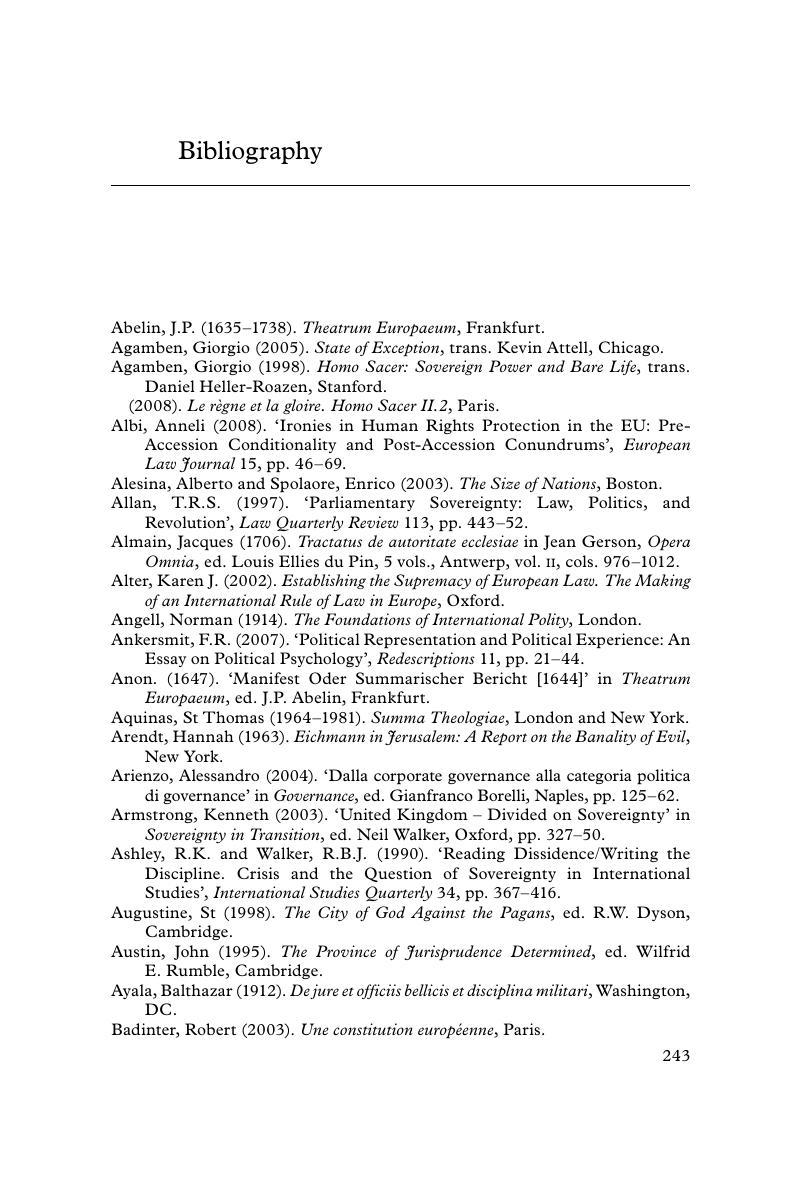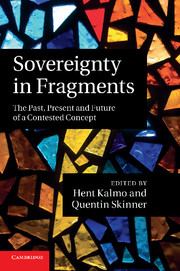Book contents
- Frontmatter
- Contents
- Notes on contributors
- Acknowledgements
- Introduction: a concept in fragments
- 1 The sovereign state: a genealogy
- 2 The apparition of sovereignty
- 3 The Westphalian myth and the idea of external sovereignty
- 4 Double binds: sovereignty and the just war tradition
- 5 The durability of organized hypocrisy
- 6 A matter of fact? The many faces of sovereignty
- 7 The survival of sovereignty
- 8 Sovereignty and after
- 9 Prolegomena to the post-sovereign Rechtsstaat
- 10 Sovereignty beyond the state
- 11 Sovereignty between government, exception and governance
- 12 Conclusion: vocabularies of sovereignty – powers of a paradox
- Bibliography
- Index
- References
Bibliography
Published online by Cambridge University Press: 04 February 2011
- Frontmatter
- Contents
- Notes on contributors
- Acknowledgements
- Introduction: a concept in fragments
- 1 The sovereign state: a genealogy
- 2 The apparition of sovereignty
- 3 The Westphalian myth and the idea of external sovereignty
- 4 Double binds: sovereignty and the just war tradition
- 5 The durability of organized hypocrisy
- 6 A matter of fact? The many faces of sovereignty
- 7 The survival of sovereignty
- 8 Sovereignty and after
- 9 Prolegomena to the post-sovereign Rechtsstaat
- 10 Sovereignty beyond the state
- 11 Sovereignty between government, exception and governance
- 12 Conclusion: vocabularies of sovereignty – powers of a paradox
- Bibliography
- Index
- References
Summary

- Type
- Chapter
- Information
- Sovereignty in FragmentsThe Past, Present and Future of a Contested Concept, pp. 243 - 263Publisher: Cambridge University PressPrint publication year: 2010



